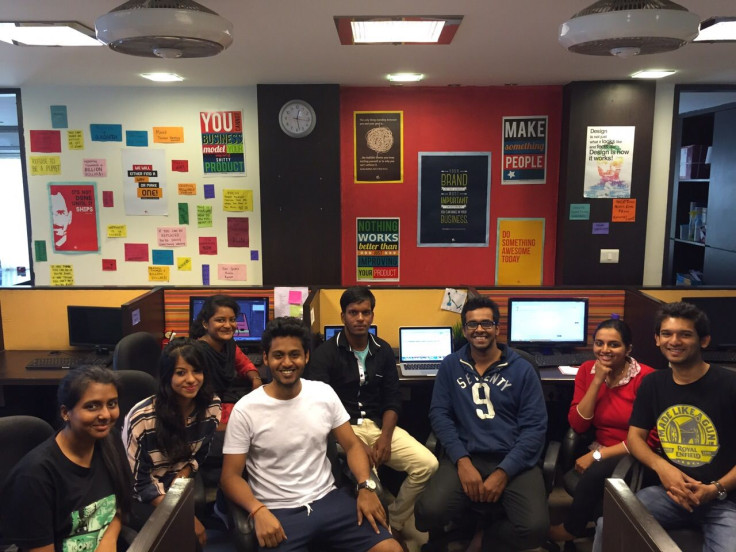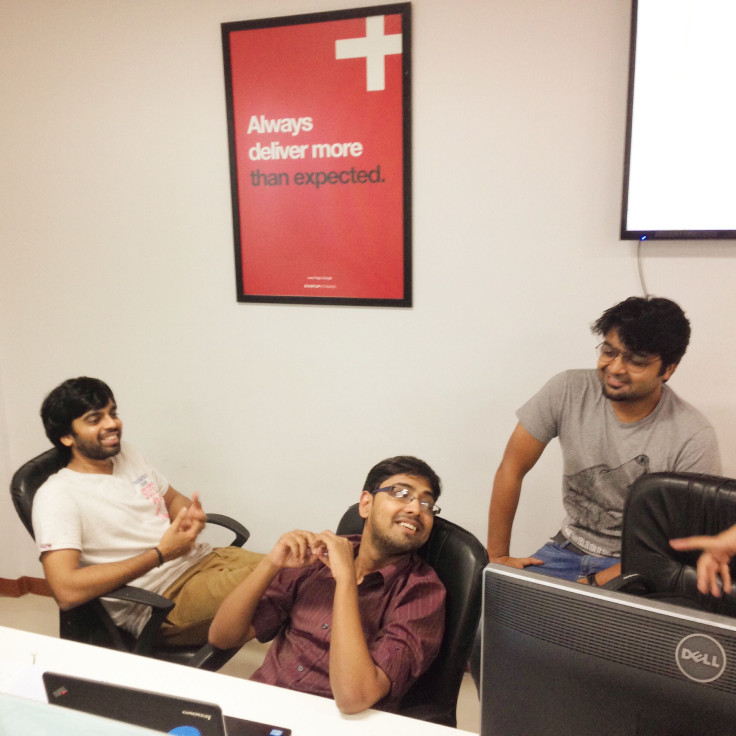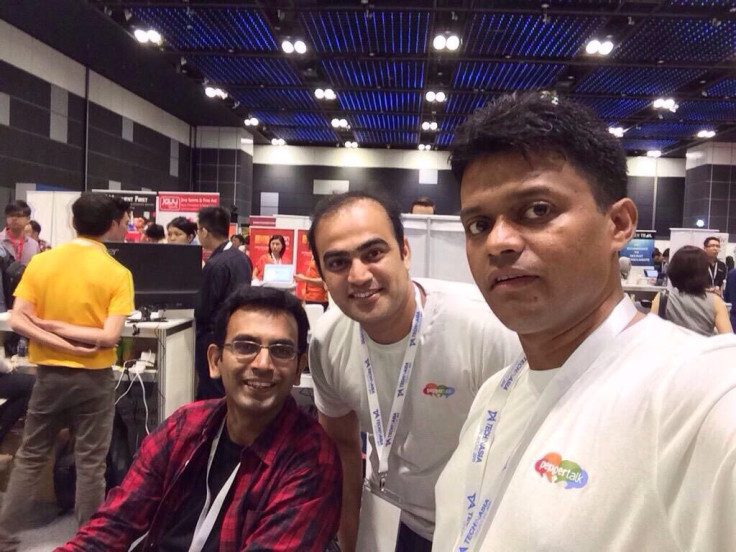Startup Nation: India’s Young Guns Defy Country's Conservative Norms In Quest For Tech Success

Yash Vardhan Kanoi and colleagues Apoorvaa Agarwal and Pratibha Nair, just out of engineering school, are founders of Bangalore’s two-year-old Jack of all Threads, which lets consumers make and sell their own designer T-shirts from the comfort of home. The trio are part of a growing entrepreneurial movement that is fueling the growth of potentially disruptive startups in India, a country that until now has mostly been known as a destination for outsourced coding and other technology grunt work.
Only a few years ago, India’s 20-something techies were all about getting a job at one the top outsourcers for the chance to work in the U.S. on an H-1B visa. Today, more and more of them, like Kanoi, Agarwal and Nair, are starting their own companies. “I wanted to bring that culture into India,” Kanoi said in an interview.
In Jack of all Threads’ main office, a converted house, Kanoi's teammates were working to Vengaboys music. Outside, in a sort of patio and parking area rolled into one, other staff were sorting a batch of T-shirts and jerseys that need to be shipped out soon.
Jack of all Threads takes orders through email or the Web. Its online design tools let users upload a carefully crafted original design or even a selfie. From October 2014 through March, the business has grown “20x,” Kanoi said. “We’re on track to do 100,000 units this fiscal year.” The startup is backed by established apparel-industry investors whose businesses run into several thousands of millions of rupees, he said.
Apoorvaa and Nair are representative of a shift underway in India. They are young, driven and unafraid to take risks in a country that’s known for being socially conservative. And they are not alone.
Dayson Pais, 24, has turned his obsession with the mobile phone and the common aversion to writing and sending CVs into mobile app company Super, which is essentially a Tinder for jobs. “Swipe right if you like a company,” he says, and job seeker and potential employer can get in touch.
In 2008, Pais was a bit of an outlier, building mobile apps when no one really had smartphones in India. He was still in a class the equivalent of the high school junior year in the U.S., but his app could tell you auto rickshaw fares and bus routes in his hometown of Mumbai. He studied engineering in college, but being his own master was really all that he had in mind. Super emerged after two failed startups and after meeting his current co-founder, Faisal Memon.
Pais’s friend Nischal Shetty, 30, took on another perennial problem, especially for small businesses -- marketing. Shetty has done so well with his startup CrowdFire -- launched when he was 26 -- that he’s found backers at Kalaari Capital, which has invested $2.5 million in his startup.
That has helped Shetty rent an apartment in San Francisco, where he's looking to build a marketing team for his company in the U.S. Some 40 percent of CrowdFire’s users are in America.

In comparison with the likes of Kanoi or Pais, Karthik Kumaraswamy, co-founder of Pepper Talk, sees himself as a late bloomer on the startup scene. Kumaraswamy is pushing 40 and Pepper Talk is his second startup. Pepper Talk has an elegant way to allow people to start polls, send instant messages and so on from right within an e-commerce app, for instance. That makes the bootstrapped venture a hot commodity in India, where online shopping companies such as Flipkart Internet are already switching to a mobile-only strategy.
Age, on the other hand, gives Kumaraswamy real perspective about why people found startups. “It’s the sense of creative freedom that you get, because when you’re working for a large organization, in a way the mandate is set for you.” On the other hand, “there’s always the ups and downs. One day you’re getting business and making money, and the next you’re worried about not enough money in the bank.”
Kumaraswamy’s resume includes an engineering degree from the country’s premier Indian Institutes of Technology; early experience as an employee at Infosys, India’s second largest software services company; and an MBA from a school in France. He can go back and get a job anytime he wants, but the startup bug has bitten deep. “I’m a late bloomer on the startup scene,” he reckons. But “it’s like adventure sport, and I know that at my stage I’ve got fewer chances, so I’ve got to make the most of them.”
While Kanoi is driven, he is the first to acknowledge the absolutely critical role that mentors have played in his rise -- people like Eric Tachibana, whose course he attended in Singapore, where he went back to study engineering and entrepreneurship.


Finding this kind of experience and adult supervision, through mentors or investors or other authoritative figures in the entrepreneurial ecosystem, will be the biggest challenge for India’s young entrepreneurs, says Bharati Jacob, a partner at SeedFund, an early-stage venture fund in India. “How to time adult supervision without throttling their growth, to balance their youthful zest and energy with some amount of caution, that will be their biggest challenge.”
© Copyright IBTimes 2025. All rights reserved.






















